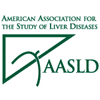 Combining Pharmasset’s once-daily experimental nucleotide analog PSI-7977 with pegylated interferon and ribavirin cured 91 percent of 47 people with hepatitis C genotype 1 after 24 weeks of treatment. These exciting results from PROTON, a Phase II clinical trial, were reported on Tuesday, November 8, at the 62nd annual meeting of the American Association for the Study of Liver Diseases (AASLD) in San Francisco.
Combining Pharmasset’s once-daily experimental nucleotide analog PSI-7977 with pegylated interferon and ribavirin cured 91 percent of 47 people with hepatitis C genotype 1 after 24 weeks of treatment. These exciting results from PROTON, a Phase II clinical trial, were reported on Tuesday, November 8, at the 62nd annual meeting of the American Association for the Study of Liver Diseases (AASLD) in San Francisco.
Genotype 1 is the most common type of hepatitis C virus (HCV) in the United States, and it’s harder to treat than other genotypes. After 48 weeks of pegylated interferon and ribavirin, about 50 percent of people with HCV genotype 1 are cured. Adding Incivek or Victrelis, the two approved HCV protease inhibitors, increases the cure rate to about 70 percent and may shorten treatment for people with HCV genotype 1.
PROTON enrolled people with genotype 1 who had never received HCV treatment. Most of them had subtype 1a, which is harder to cure than subtype 1b. About one quarter of PROTON’s participants were black or Latino. People with cirrhosis were not included in PROTON.
Two PSI-7977 dosing groups were included in PROTON. One group took 200 milligrams (mg) of PSI-7977 once daily in combination with pegylated interferon and ribavirin for 12 weeks. The second group took 400 mg of PSI-7977 once daily together with pegylated interferon and ribavirin for 12 weeks. Both groups continued pegylated interferon/ribavirin, without PSI-7977, for an additional 12 weeks.
A control group was also included in the study. In this group, study volunteers received a total of 48 weeks of pegylated interferon plus ribavirin without PSI-7977.
Adding PSI-7977 to pegylated interferon and ribavirin significantly increased cure rates, noted study presenter Eric Lawitz, MD, from Alamo Medical Research in San Antonio, Texas, and his colleagues. Since the control group was treated for 48 weeks, only end-of-treatment (EOT) response rates were available. At EOT, 50 percent of 26 people in the control group had undetectable HCV viral loads. In contrast, 91 percent of people treated with 400 mg PSI-7977 plus pegylated interferon and ribavirin had undetectable viral loads 12 weeks after completing therapy—a sustained virologic response (SVR), or viral cure rate.
In the lower-dose group, the SVR was 88 percent. Of the four people in this group who were not cured, one person relapsed after treatment, and three of them experienced viral load rebounds while they were taking pegylated interferon and ribavirin without PSI-7977.
There were no viral rebounds in the 400 mg group. The person who did not achieve SVR in the 400 mg group relapsed after finishing treatment. According to Lawitz, there was no evidence of drug resistance among the five people who were not cured.
Of note, PSI-7977 worked just as well for people with the IL-28B TT genotype, which is predictive of a poor response to pegylated interferon and ribavirin. Lawitz noted that people with the TT genotype who received PSI-7977 had an initial rapid response to treatment and maintained it; all 13 of them were cured. According to Lawitz, “The high SVR in HCV genotype 1 was independent of predictors of poor interferon response.”
PROTON’S dropout rates were very low; three people left because of side effects from pegylated interferon and ribavirin, and two people were lost to follow-up. Fatigue, headache and chills were more common among people in the placebo group. Overall, side effects were similar across the study arms except for insomnia, which was more common among people who were given the 400 mg dose of PSI-7977.
Although mild to moderate lab abnormalities were similar in all study groups, severe drops in all white blood cells and in neutrophils—a specific type of white blood cell—were reported in 2 percent to 4 percent of people taking PSI-7977 versus none of the study volunteers in the placebo group. Moderate-to-severe anemia developed among 31 percent of people given the 200 mg dose of PSI-7977 versus 17 percent of the 400 mg arm and 15 percent of the placebo group.
In summary, Lawitz noted that “PSI-7977 was very well-tolerated, with no attributable safety signal, and no discontinuations were related to PSI-7977.”
Results from ELECTRON, a Phase II study of PSI-7977 in people with HCV genotypes 2 and 3, are also promising: 12 weeks of PSI-7977 and ribavirin, without pegylated interferon, cured 100 percent of 10 people. The study has been amended to add people with HCV genotype 1. Both first-time treatment takers and previous null responders with HCV genotype 1 are being treated with 12 weeks of PSI-7977 and ribavirin in ELECTRON.
Pharmasset recently announced its Phase III clinical trial program. Two studies—FISSION and POSITRON—will further explore the safety and efficacy of PSI-7977 plus ribavirin, but without pegylated interferon, in approximately 725 people with genotype 2/3 HCV infection. A third study will explore PSI-7977 in HCV genotype 1 patients, with the design of the study determined by the amended ELECTRON clinical trial and another study still under way.






Comments
Comments